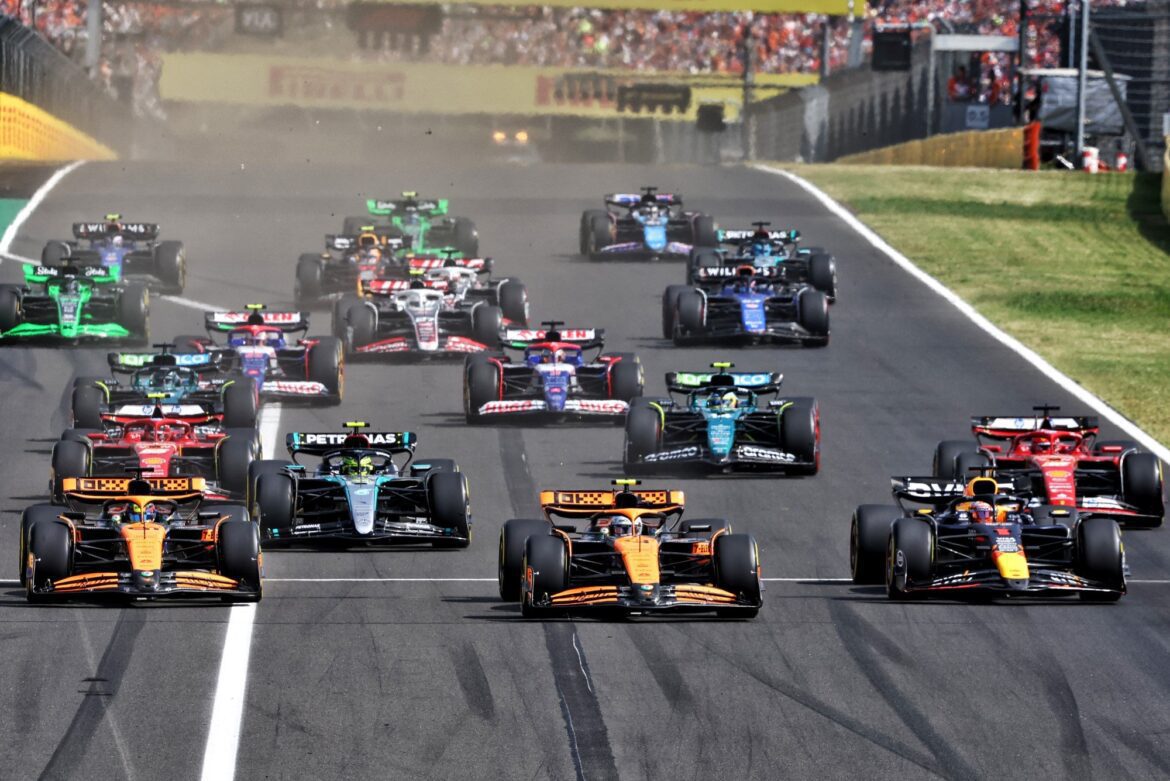The Remarkable Financial Growth of Formula 1
The world of motorsport has seen numerous shifts and transformations over the years, but few have matched the impressive financial ascent of Formula 1 (F1). Recent financial reports released by Liberty Media, the parent company of Formula 1, reveal a staggering 40% increase in revenue during the second quarter of 2025. The figures jumped from $871 million in 2024 to an astounding $1.226 billion in 2025. This surge in revenue has not only enhanced the overall financial health of the sport but has also led to significant increases in the payments made to the racing teams.
Revenue Growth and Team Payments
With the revenue boost of $1.226 billion, the amount distributed to teams has also seen a positive change. Teams collectively received $513 million, marking an 18% increase compared to the same quarter the previous year. This increase in payouts is a direct result of the heightened revenue generated from various sources, which has been instrumental in ensuring that teams benefit from the sport’s growing popularity.
The increased financial returns can be attributed to a combination of strategic initiatives and successful ventures. One of the most significant contributors to this surge is the acquisition of MotoGP, which has expanded Liberty Media’s portfolio and brought in additional revenue streams. Furthermore, the renewal of contracts for key Grand Prix events, specifically the Canadian and Austrian Grands Prix, has solidified F1’s presence in North America and Europe, respectively.
Expansion Through Partnerships and Collaborations
In addition to contract renewals, F1 has successfully inked new partnerships with major brands, including PepsiCo. Such collaborations not only enhance the sport’s visibility but also contribute substantially to its revenue. The partnership with PepsiCo is particularly noteworthy, as it aligns F1 with a globally recognized brand and opens doors to innovative marketing campaigns that engage fans across various demographics.
The financial success of F1 is also bolstered by its cultural impact, as evidenced by the recent release of the film "F1 – The Movie." The film has become a box office sensation, grossing over $552 million and positioning itself as the most successful film produced by Apple and Brad Pitt. The movie has played a significant role in attracting both long-time fans and newcomers to the sport, creating an even stronger connection between the audience and the racing world.
Prize Distribution Based on Team Performance
As a result of the revenue increase, the distribution of prize money has been adjusted to reflect the teams’ performances in the 2024 constructors’ championship. For instance, McLaren is set to receive approximately $88 million, while Sauber, which finished last in the previous year’s standings, will receive around $37 million. This performance-based distribution model not only incentivizes teams to strive for better results but also enhances competitive dynamics within the championship.
The excitement and competitiveness on the racetrack have fostered a robust relationship with fans. This connection is further reinforced by the effective media campaigns and sponsorship efforts that have been diligently executed. The thrilling nature of races, combined with strategic marketing initiatives, has led to increased engagement from fans, both on social media and other digital platforms.
The Role of Leadership in F1’s Success
Stefano Domenicali, the CEO of Formula 1, has emphasized the importance of maintaining strong partnerships with teams and stakeholders. He recognizes that the cultural significance of the recent film has positively impacted the sport’s image, attracting a diverse audience. Domenicali’s leadership has been pivotal in steering F1 towards continued financial success while fostering a culture of collaboration among teams and sponsors.
The enthusiastic response from fans, coupled with the sport’s innovative marketing strategies, has positioned F1 for sustained growth in the coming years. As the sport continues to evolve, it remains committed to enhancing the fan experience, ensuring that both traditional audiences and new fans find value in the thrilling world of motorsport.
Future Prospects for Formula 1
Looking ahead, the future of Formula 1 appears bright, with expectations for further financial growth and an expanding global footprint. The ongoing commitment to enhancing the sport’s appeal through innovative partnerships, engaging storytelling, and thrilling race experiences is likely to continue driving interest and investment in F1.
The sport’s ability to resonate with a wide audience, coupled with its strategic initiatives, positions it well for continued success. As Formula 1 navigates the complexities of the modern sports landscape, it remains focused on delivering exceptional entertainment while maximizing revenue opportunities for all stakeholders involved.
In conclusion, the remarkable financial growth of Formula 1 is a testament to its ability to adapt and thrive in a competitive environment. With a combination of strategic partnerships, successful media ventures, and a commitment to excellence, F1 is poised to maintain its status as a premier motorsport category on the global stage.
